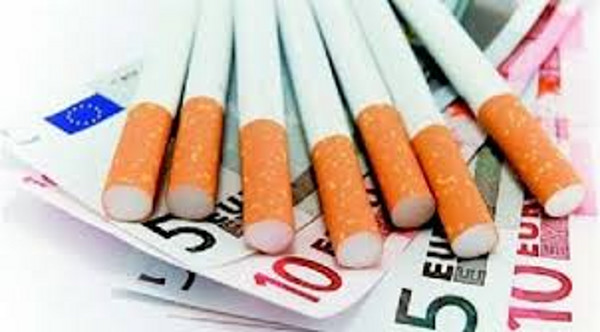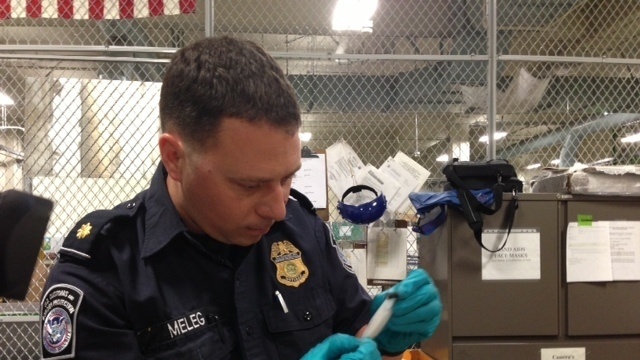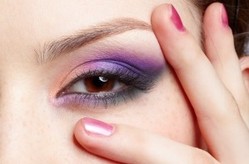
Financial Crisis Sparks Cigarette Smuggling in Greece
Nearly a quarter of tobacco products used in Greece are likely to have been smuggled in to the country, according to the latest data from the Center For Planning and Economic Research (KEPE). KEPE’s survey aimed to define the extent of the problem and to gauge its effects on Greece’s economy and public revenues, and to suggest realistic solutions. Using data from the Hellenic Statistic Authority (ELSTAT) and the Ministry of Finance, KEPE revised its estimates of the scale of the illicit trade in tobacco products up to 10.8 percent of the smoking market in 2010, 14.9 percent in 2011 and 17.2 percent in 2012. KEPE predicts that cigarette smuggling will have exceeded 23 percent in 2013. A far as tobacco taxes are concerned, Greece had the highest specific excise duty and the lowest ad valorem duty in the EU, the agency noted.
http://greece.greekreporter.com/2014/05/09/financial-crisis-sparks-cigarette-smuggling-in-greece/
Lear MoreFake Gucci, Nike Distributor Jailed
LOS ANGELES – A San Gabriel Valley businessman who coordinated the importation of 11 containers of counterfeit apparel – including Nike, Gucci and Coach products worth more than $2.3 million – was sentenced today to 31 months in federal prison. Today’s sentencing is the second in the past two weeks in which a smuggling operation resulted in a federal prison term. Last week, a Glendale man who brought bogus AMG wheels into the country received a one-year prison sentence. Both defendants previously pleaded guilty to trafficking in counterfeit goods.
Lear More
Millions of cigarettes confiscated
A total number of 13 Million illegal cigarette sticks have been confiscated from January to March 2014, data released today said. Customs alone have been responsible for confiscating 98% of it. Meanwhile in an effort to create awareness among its employees on the impact of illegal smuggling and trading of cigarettes (illicit trade), Ceylon Tobacco Company (CTC) recently conducted an ‘Anti-Illicit Trade (AIT) in Tobacco Week’ at its head office in Colombo. The company also launched a dedicated hotline 077 2 440794 for employees to report the sale and distribution of illicit tobacco products in Sri Lanka. It is estimated that globally Governments lose US$ 40 billion in revenue from unpaid taxes due to the illegal cigarette trade. It is noteworthy to mention that this amount is sufficient to provide 75kg of rice to every person in Africa.
Lear More

SFO plays key role in seizing counterfeit products
Airport also plays role in designer drugs
From fake Viagra pills to knockoff sunglasses, sports jerseys and cellphone accessories, U.S. Customs and Border Protection Supervisor Jeffrey Meleg said the battle to keep counterfeit goods from landing on U.S. soil is relentless. “It’s a cat-and-mouse game,” he said. “It comes in constantly. It never stops.” Meleg led KCRA 3 on a rare tour of the CBP’s postal inspection facility at San Francisco’s airport. CBP is responsible for inspecting U.S. mail arriving from abroad that is being carried by passenger planes. “We inspect about a million a month,” Meleg said.
http://world.einnews.com/article/203395413/-2BjCH41LlYl3dDV?n=1&code=AgcfkaVftQFfz4kH
Lear MoreNew task force set up to combat counterfeit cigarettes
A NEW task force has been set up to tackle the problem of counterfeit and illegally smuggled cigarettes on the streets of Notts. The county council has invested £91,000 of its public health funding into the initiative, which will pay for investigations to cut down on the supply and use of illegal tobacco products. The team has already carried out its first raids in nine shops across Sutton-in-Ashfield, Hucknall, Mansfield, Stapleford and Netherfield, and two houses in Gedling. They uncovered around 90,000 counterfeit cigarettes and 20kg of illegal tobacco with an estimated street value of £40,000.
Lear More
Confidence Reigns, Counterfeit Consumer Electronics Continue to Fool Consumers
Canon U.S.A., Inc., a leader in digital imaging solutions, will unveil today the results of a 2013 Anti-Counterfeit Study it commissioned on U.S. consumers’ attitudes and perceptions of counterfeit consumer electronics in the U.S.(1) The study reveals that while counterfeit consumer electronics are a significant concern to U.S. consumers, most seem to be unaware of the full impact and risks of their purchase and use. The study revealed that consumers trust their instincts, but seem to lack the understanding of the possible safety risks and the true long-term costs of counterfeit consumer electronics.
Lear More
Department of Revenue reports on cigarette enforcement
Department of Revenue reports on cigarette enforcement activities
Since July 1, 2013, the Minnesota Department of Revenue has completed over 1,000 inspections of retailers to ensure they are selling only state-stamped cigarettes. The department has worked with law enforcement agencies in numerous seizures of unstamped cigarettes. State stamps on cigarettes are proof that the seller paid Minnesota’s cigarette taxes.
The increase in cigarette and tobacco taxes that took effect July 1, 2013, reflects the state’s commitment to emphasize a healthy community and reduce the number of young people using tobacco. The cigarette tax increase will also help cover the long-term public health costs associated with tobacco use.
Lear More
Businessmen charged with selling counterfeit drugs
A suburban New York pharmaceutical company sold more than $17 million in counterfeit, misbranded or unapproved drugs, including for cancer and birth control, according to a federal indictment unsealed Wednesday against the two men in charge of the business.
Great Neck-based Pharmalogical, Inc.’s William Scully, 45, of Commack, and Shahrad Rodi Lameh, 40, of Manhasset, pleaded not guilty in U.S. District Court in Central Islip. Bond was set for each at $500,000.
Lear More
Illegal tobacco ring dismantled
Illegal tobacco ring dismantled, Police say
28 arrests and $7 million in contraband seized; ring linked to Mafia, aboriginal organized crime
Police forces on both sides of the Canada-U.S. border have dealt a major blow to an illegal tobacco ring that they say was linked to the Mafia and aboriginal organized crime. Officials from the Sûreté du Québec, the Canada Border Services Agency, the RCMP and the U.S. Department of Homeland Security were on hand Wednesday as 400 officers fanned out in Montreal and the surrounding regions and began raiding dozens of properties. Among the locations targeted just before dawn were homes in St-Léonard and Valleyfield and a strip club in Dundee, near the border. In all, $7 million worth of contraband was seized and 28 people arrested. Police are still searching for seven people linked to the criminal ring, which allegedly involved close collaboration between the Mafia and aboriginal organized crime. Residents of Kahnawake said it was the first time they’d heard police refer to “aboriginal organized crime” and said the raids will affect many members of their community who depend on the cigarette industry to make an honest living.
Lear More
In brief: Record fake cosmetics seizure in Dubai
The authorities in Dubai have seized 1.4m counterfeit cosmetics and personal care products with an estimated market value of AED 16m ($4.4m).
The goods were seized by police and the Department of Economic Development (DED), according to a report in Gulf Today, which said the record haul included shampoos, soaps and skin creams, amongst other products.
Enforcement officers uncovered the counterfeits at a manufacturing facility and attached warehouse in a desert area of Dubai and have taken the owner of the site into custody.
Lear More


